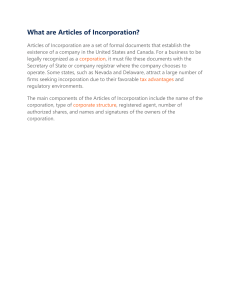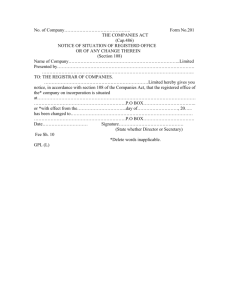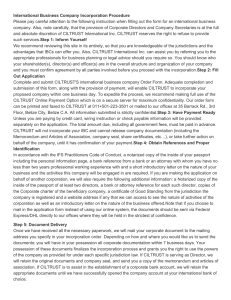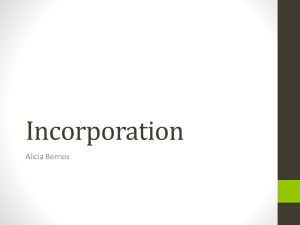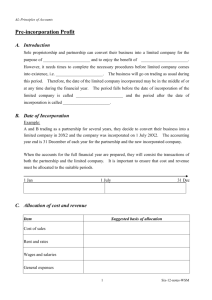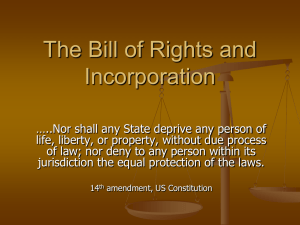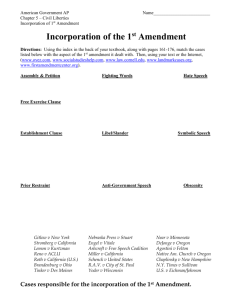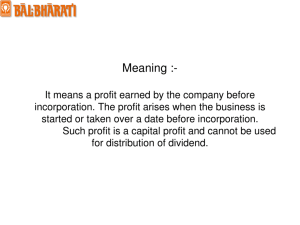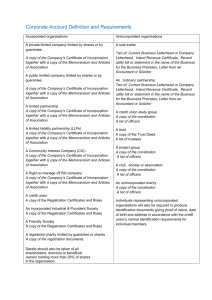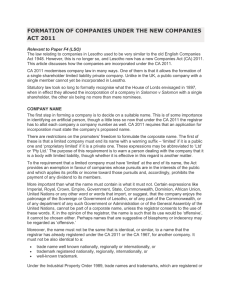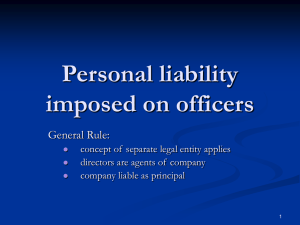Introduction to Incorporation
advertisement
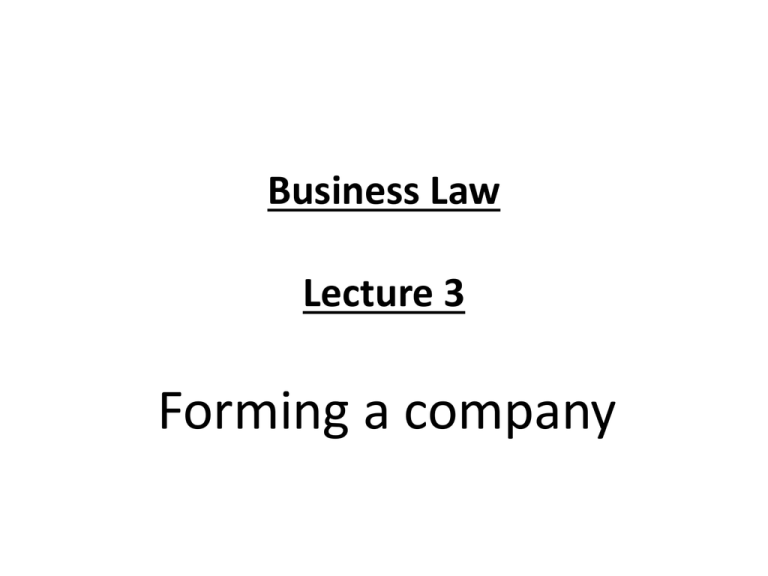
Business Law Lecture 3 Forming a company Introduction to Incorporation • Commonest trading structure • Different to sole traders and partnerships • Body corporate Incorporation by Registration • The registration process involves sending to the Registrar of Companies, Companies House, Cardiff :• Memorandum of Association • Application for registration • Statement of compliance • Appropriate fee What’s in the Memorandum of Association? • Under the CA’06 just a signed statement that the promoters wish to form a company and to take at least 1 share each in the company What’s in the application for registration? • Company’s proposed name • Whether the company's registered office is in England + Wales Scotland or Northern Ireland • Whether liability of members of the company is to be limited by shares • Whether the company is to be private or public • Details of the capital and initial shareholding What’s in the statement of compliance? • A declaration the relevant statutory provisions of the CA’06 including business names have been complied with How much is the fee? • • £20 electronically £40 by paper Then what ? 1. If the Registrar is satisfied with the documentation he will register the company and issue a certificate of incorporation. 2. A certificate of incorporation signifies the company has been created and the date on the certificate is conclusive evidence of valid incorporation 3. From the date of registration the company has all of the powers and obligations of a registered company including a corporate personality Off the Shelf Companies –These are already registered and can be altered as necessary –Not bespoke –Costly but saves time and effort Types of Registered Companies • Under the CA’06 companies are divided in to • • • • Public Private Limited Unlimited We will ONLY be looking at a private limited company ie will have the suffix ltd/limited/LTD Promoters • Individuals who wish to create a company who submit the registration documents to the Registrar of Companies to create the company and are the first shareholders • From the date of registration the promoters become the company’s directors subject to a range of statutory duties – see later lecture Pre incorporation contracts • These are contracts which the promoters of the company make before the company is incorporated, on the assumption the company will assume responsibility for the contract • What happpens if there is a breach of that contract? S.51 CA’06 “A contract that purports to be made by or on behalf of a company at a time when the company has not been formed has effect, subject to any agreement to the contrary, as one made with the person purporting to act for the company or as agent for it, and he is personally liable on the contract accordingly” Braymist v Wise Finance Co Ltd [2002] Promoter personally liable for pre-incorporation contracts AND Promoter can personally enforce a pre-incorporation contract The good points about incorporation 1. A company has its own personality and is a separate legal person. 2. A company’s members have limited liability. 3. A company can outlive shareholders. 4. A company can own property and enter into contracts. 5. A company can borrow money. The bad points about incorporation 1. A company must comply with many statutory regulations. 2. Certain company documents are public ones for all to see. 3. A company can be sued just like a human being can for breach of contract or negligence. 4. A company can commit certain crimes like a human being
